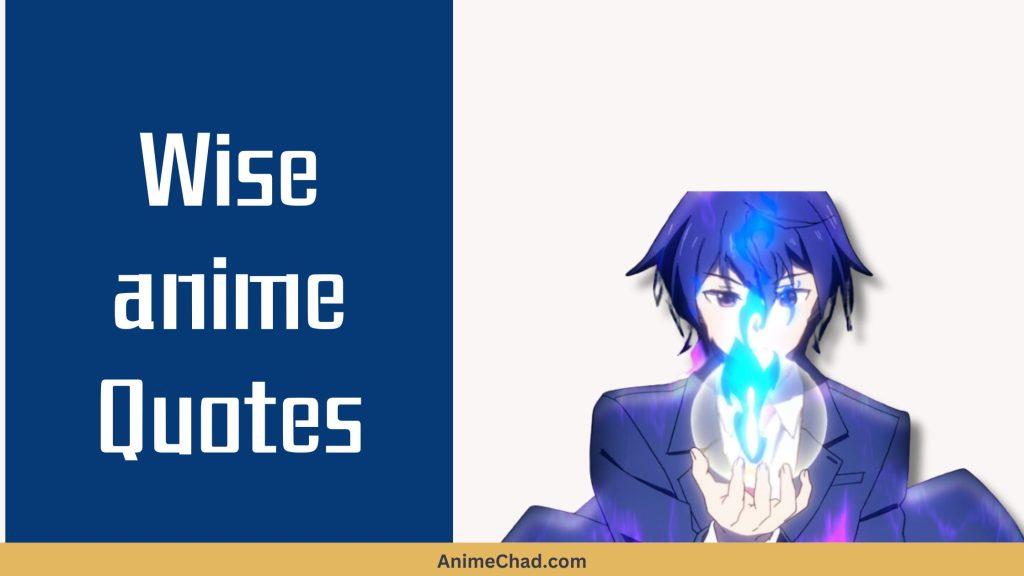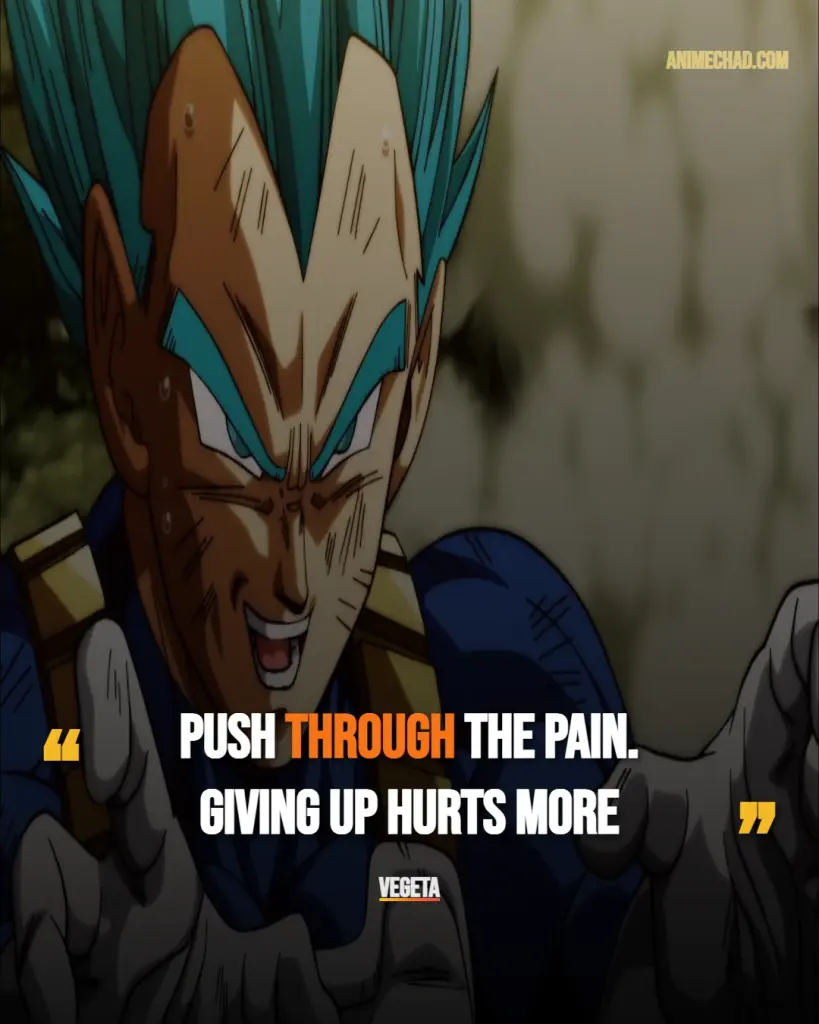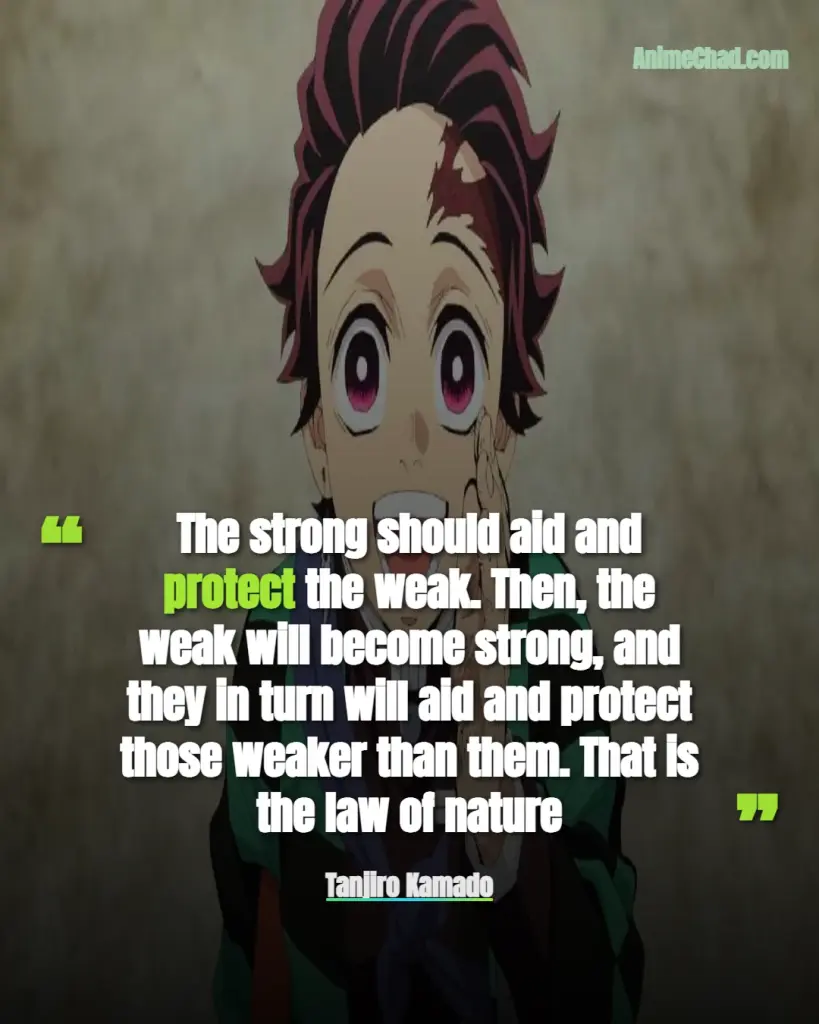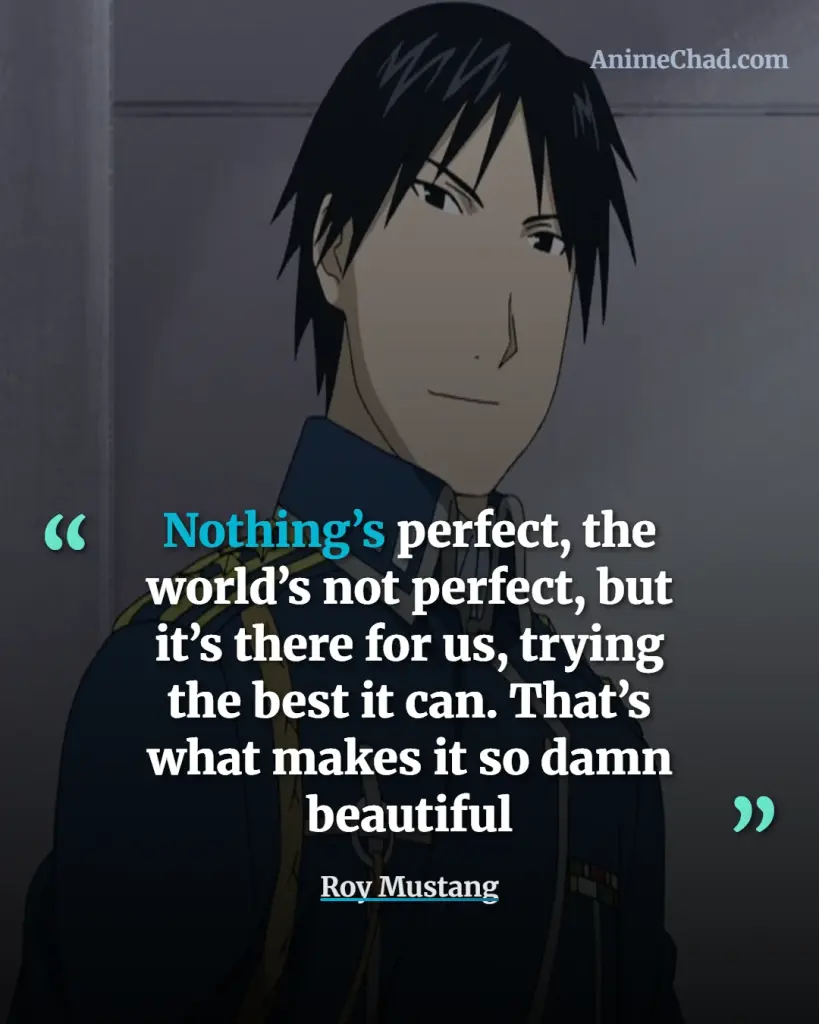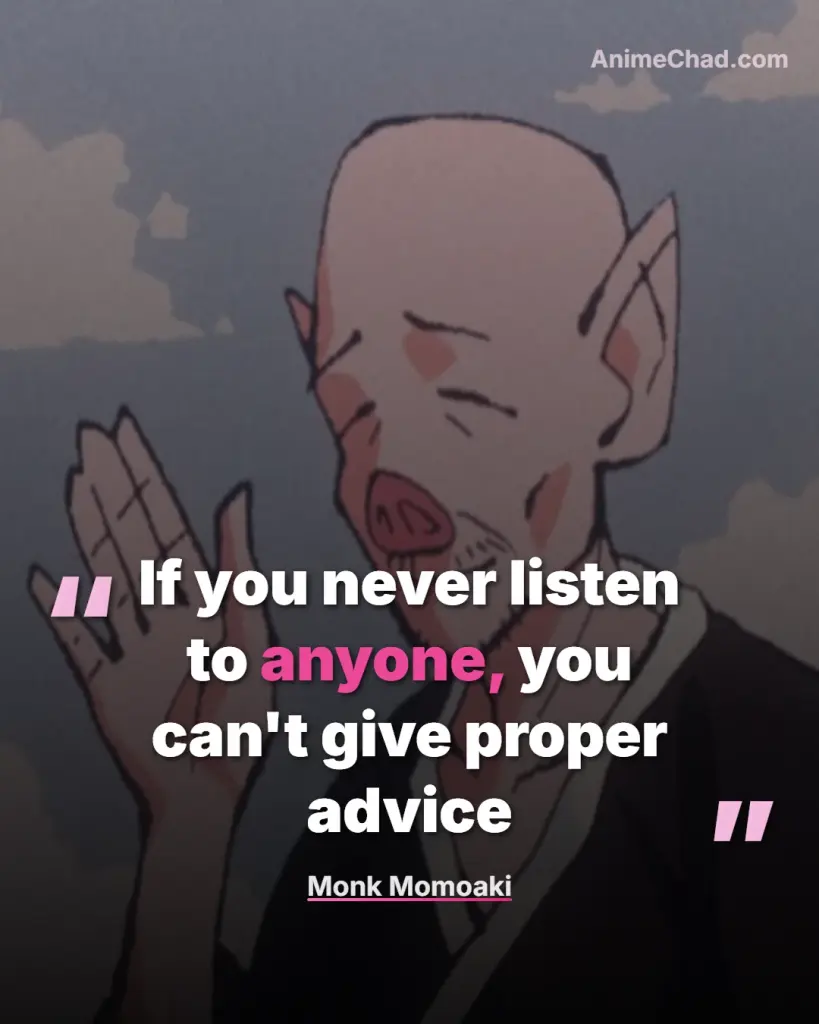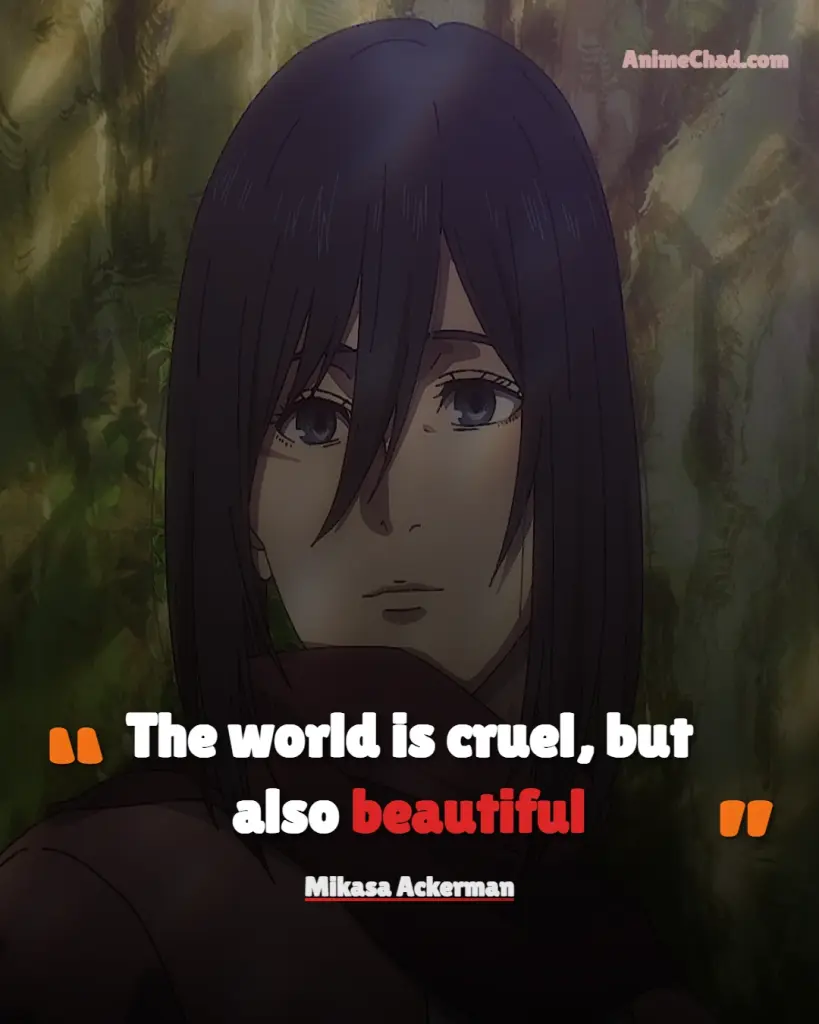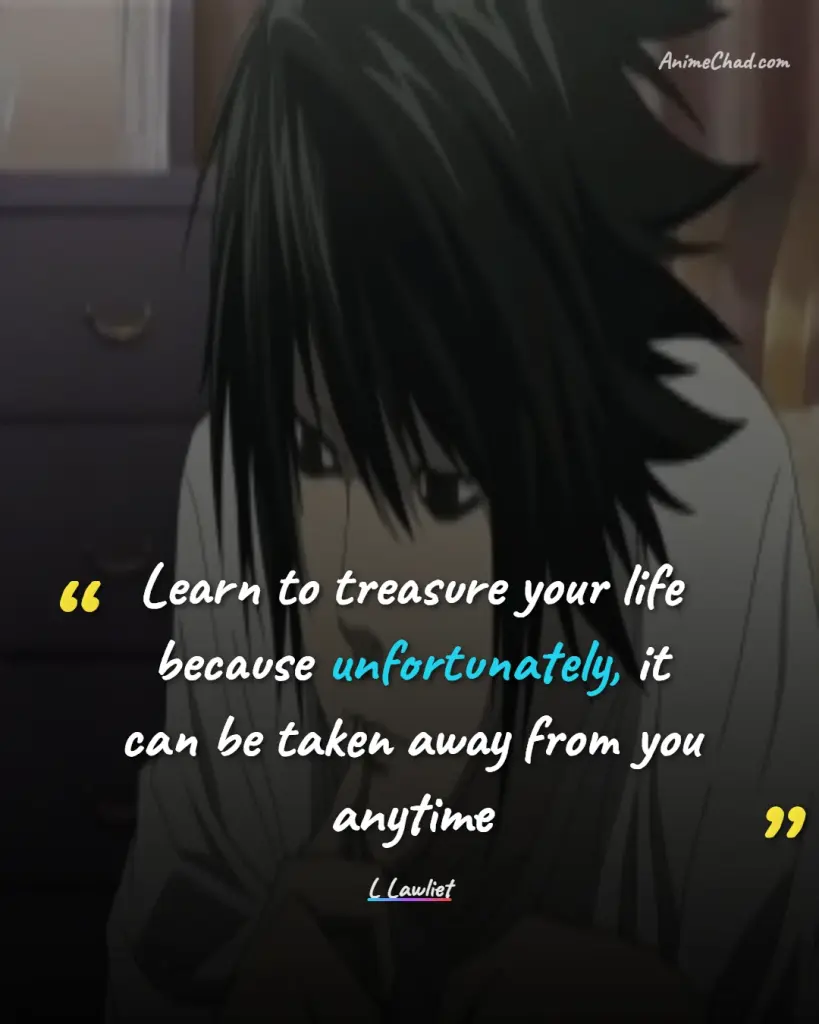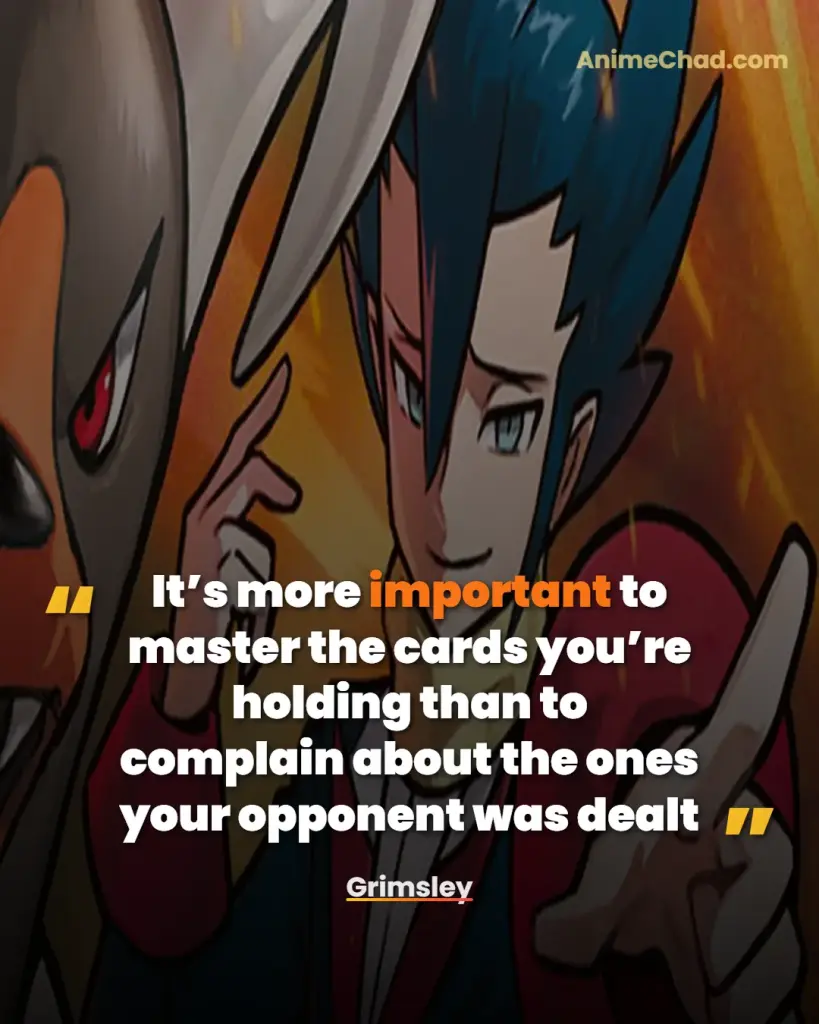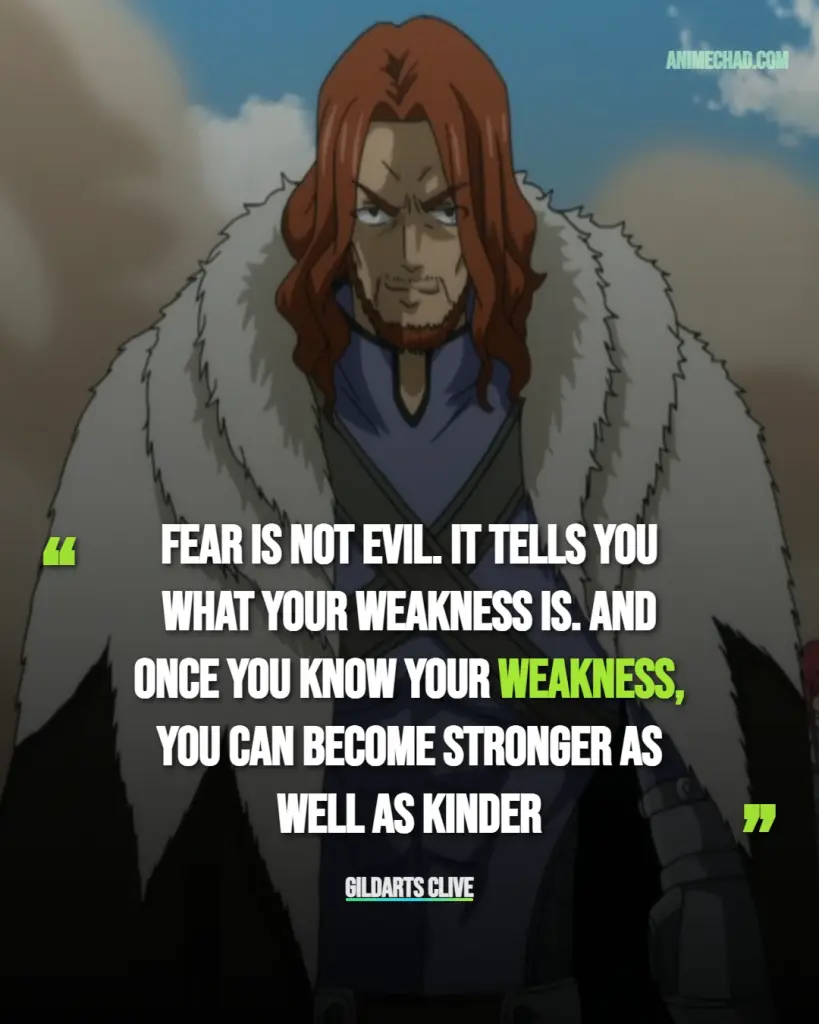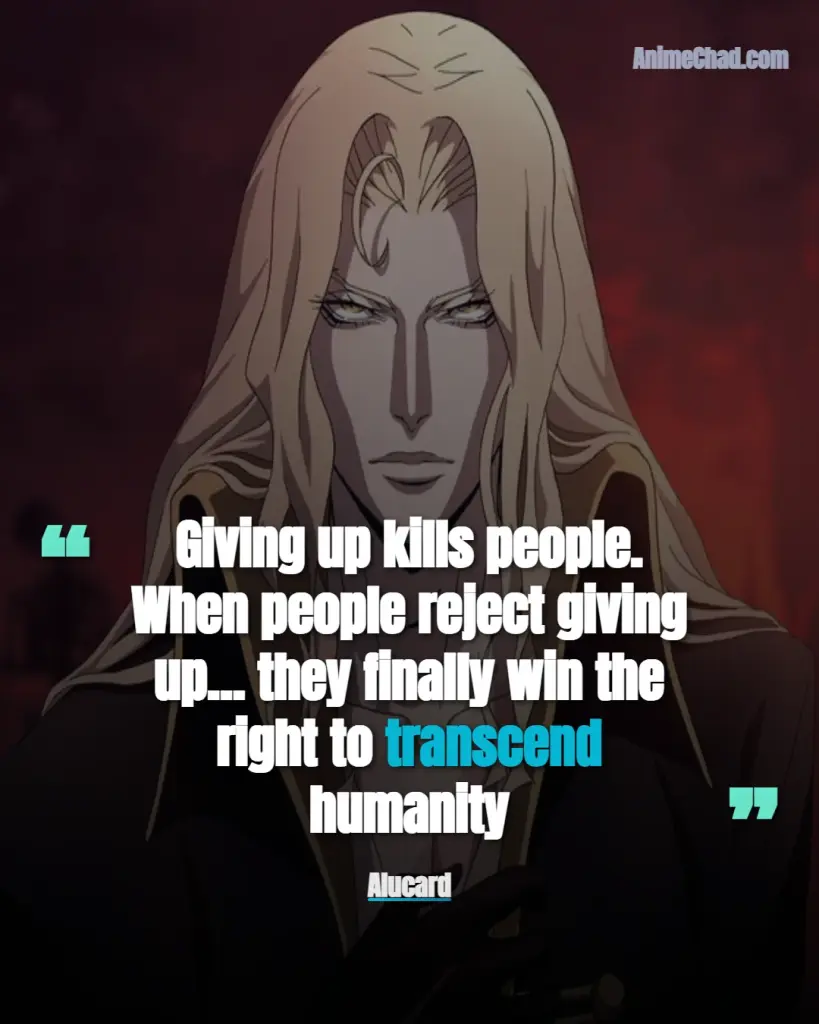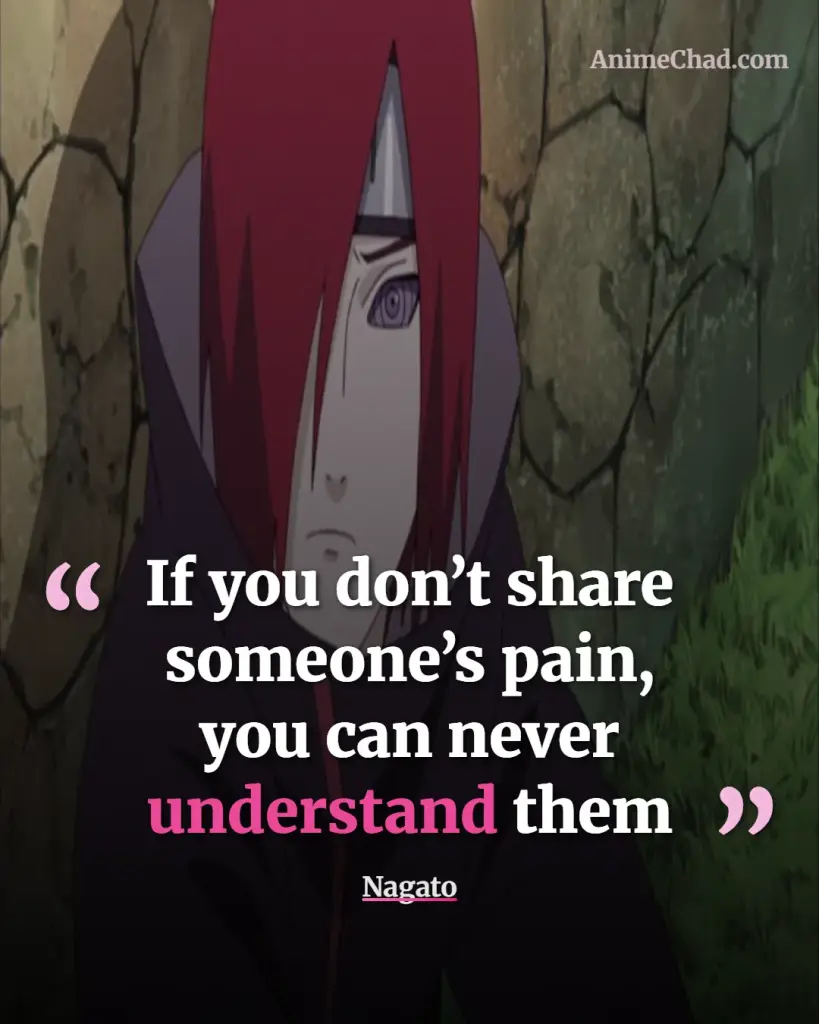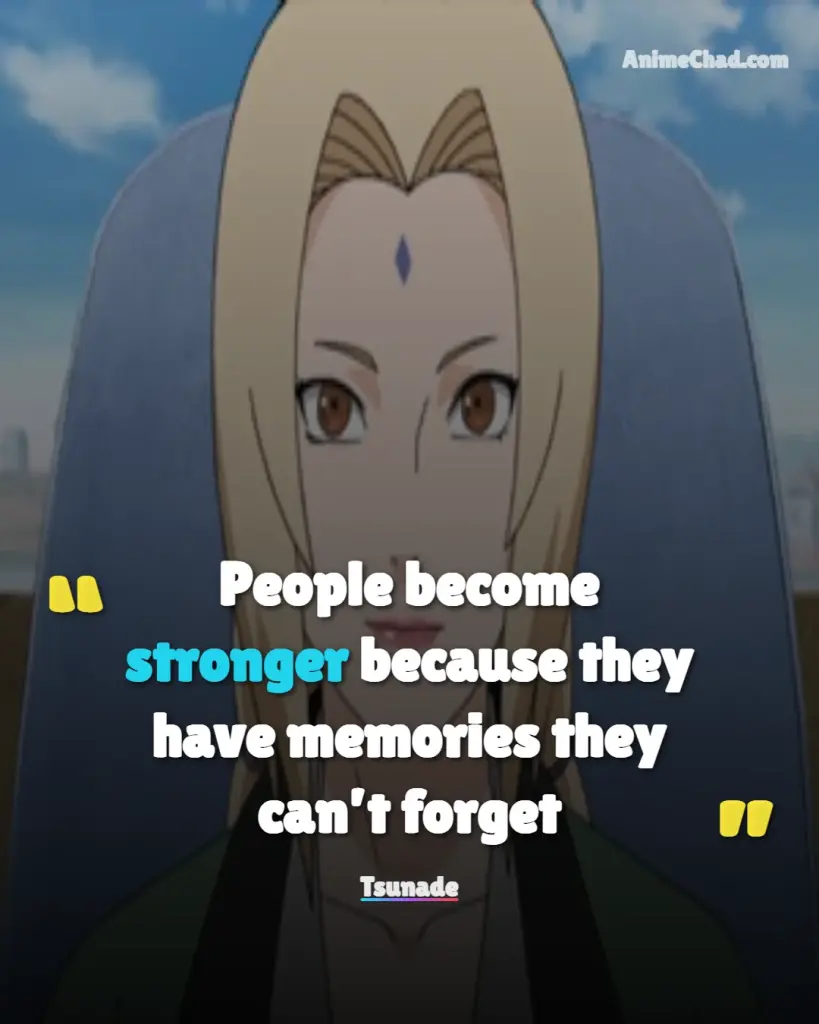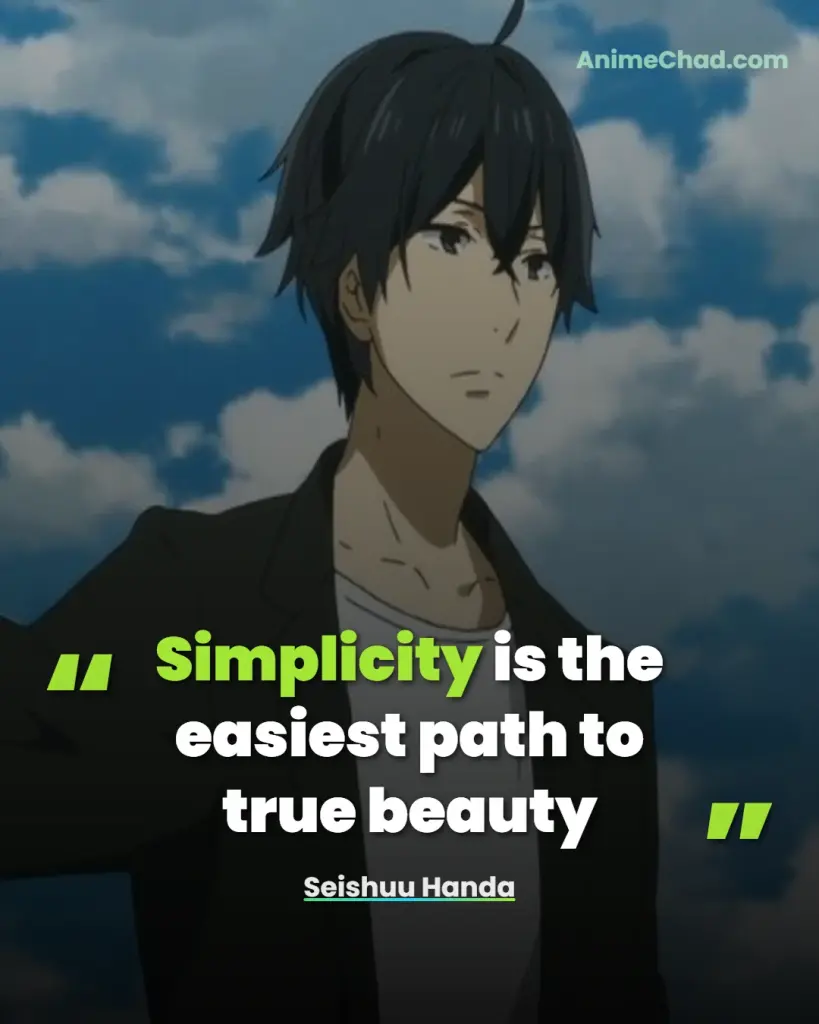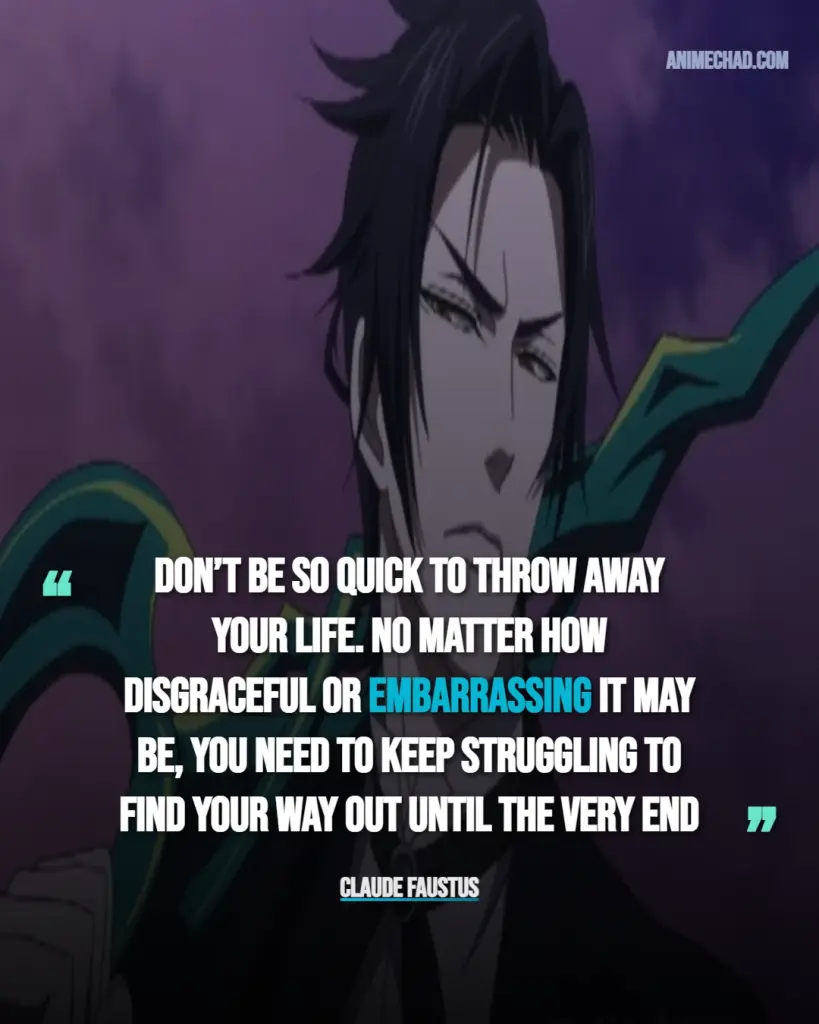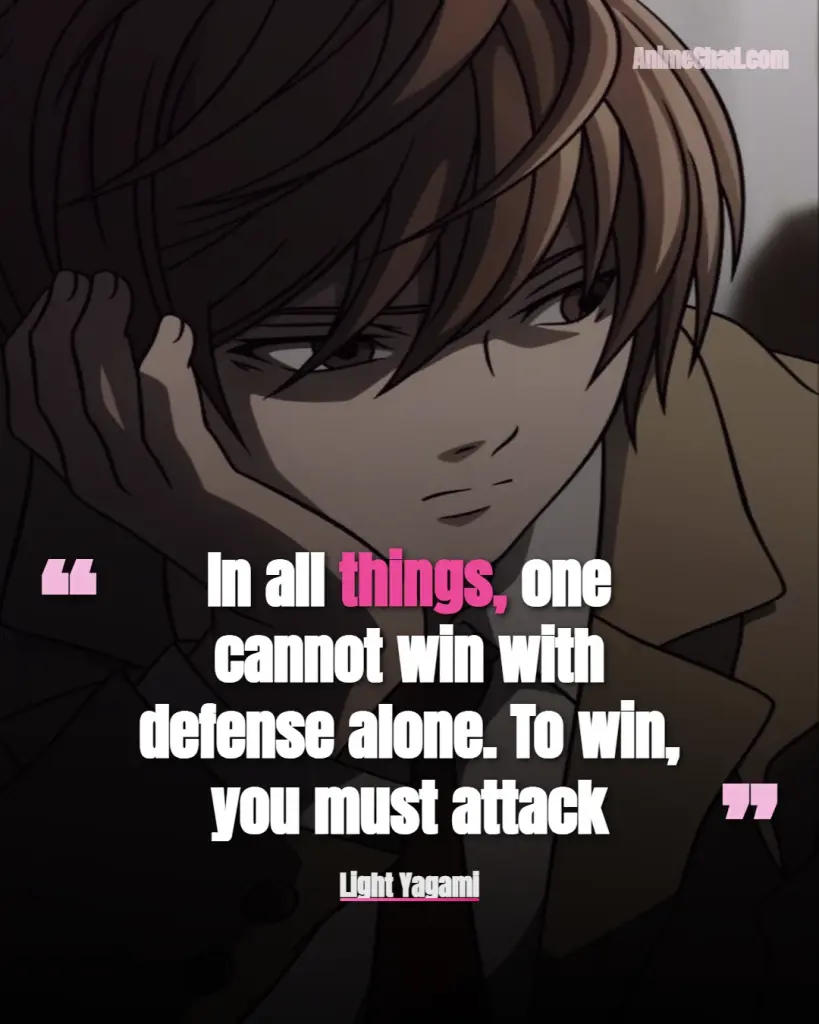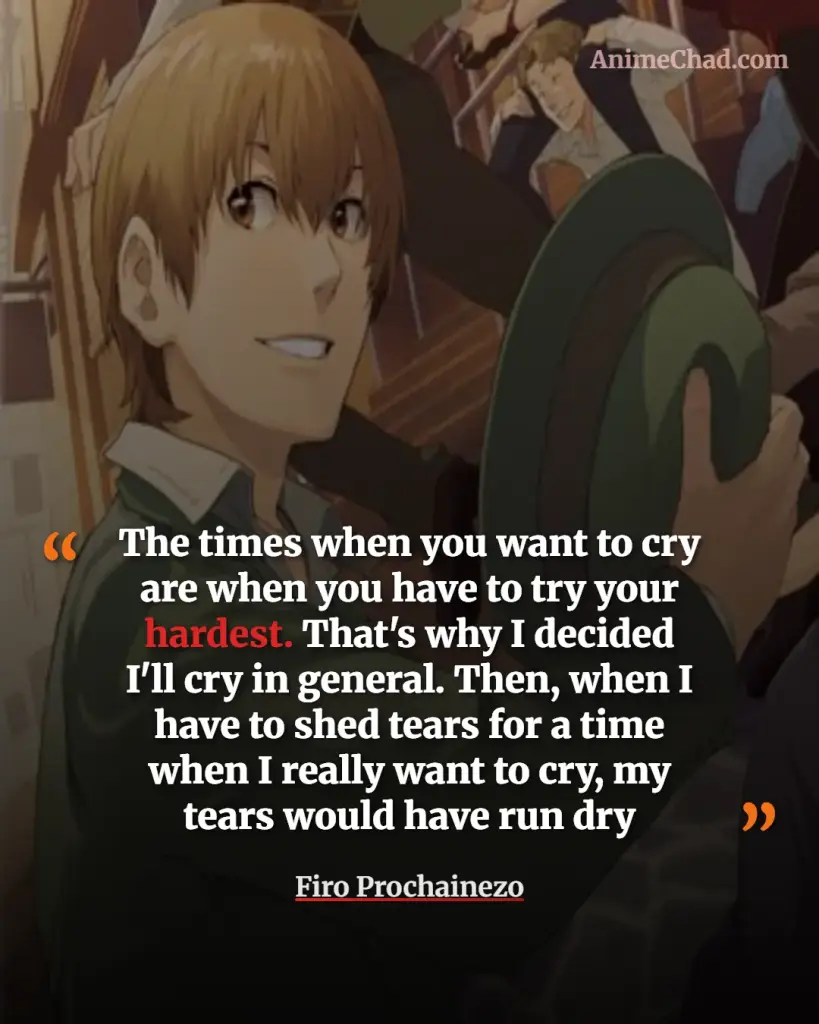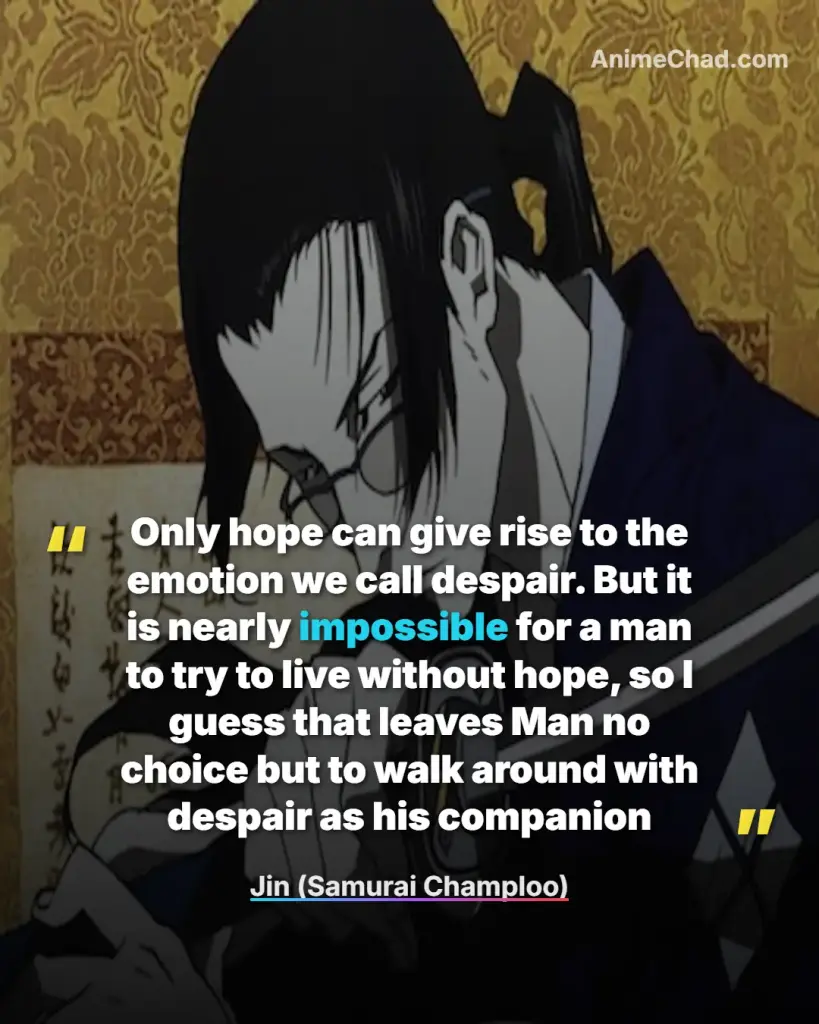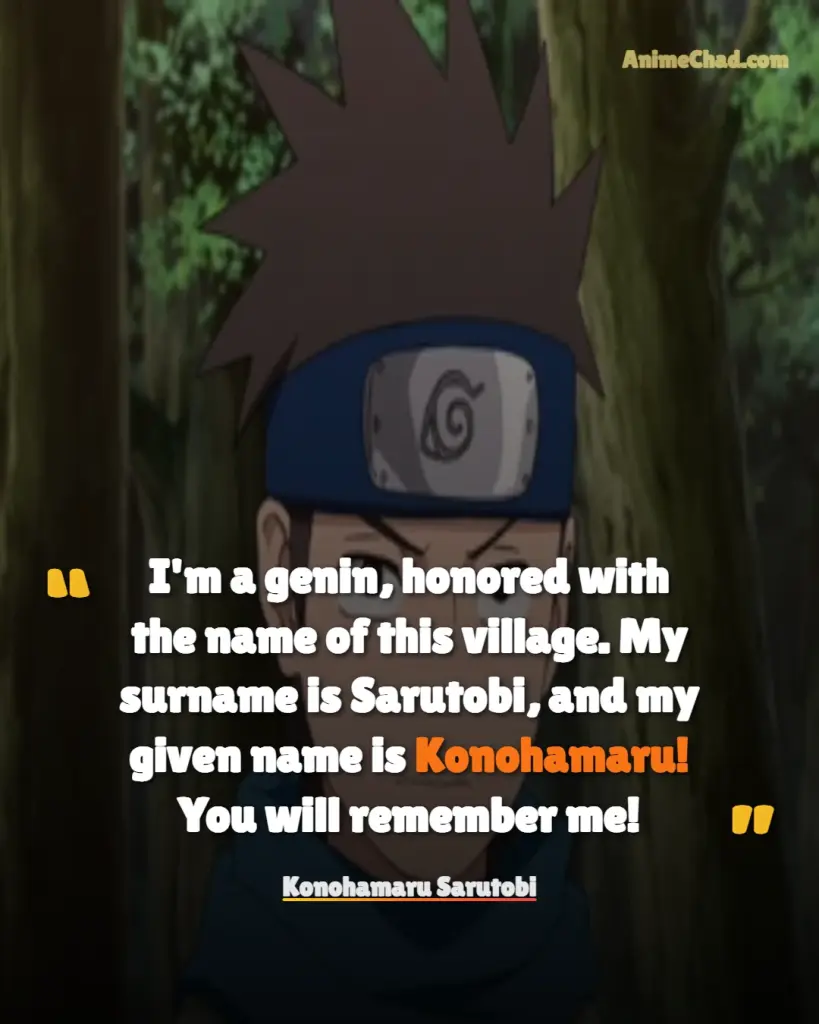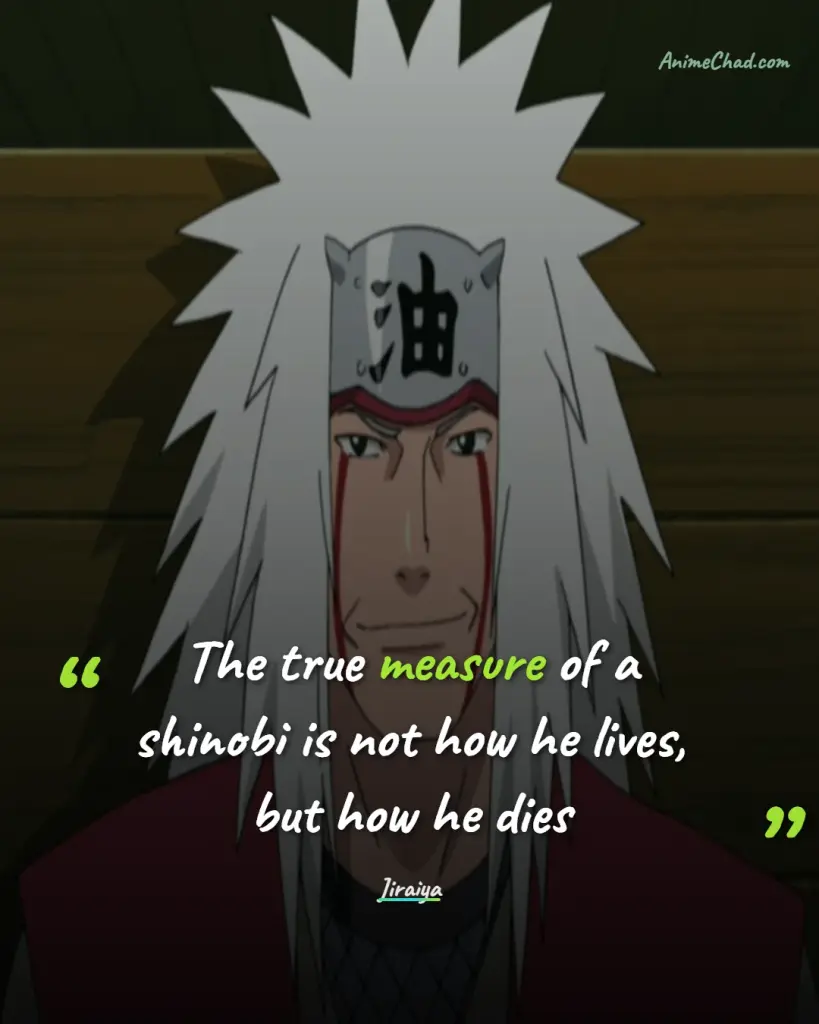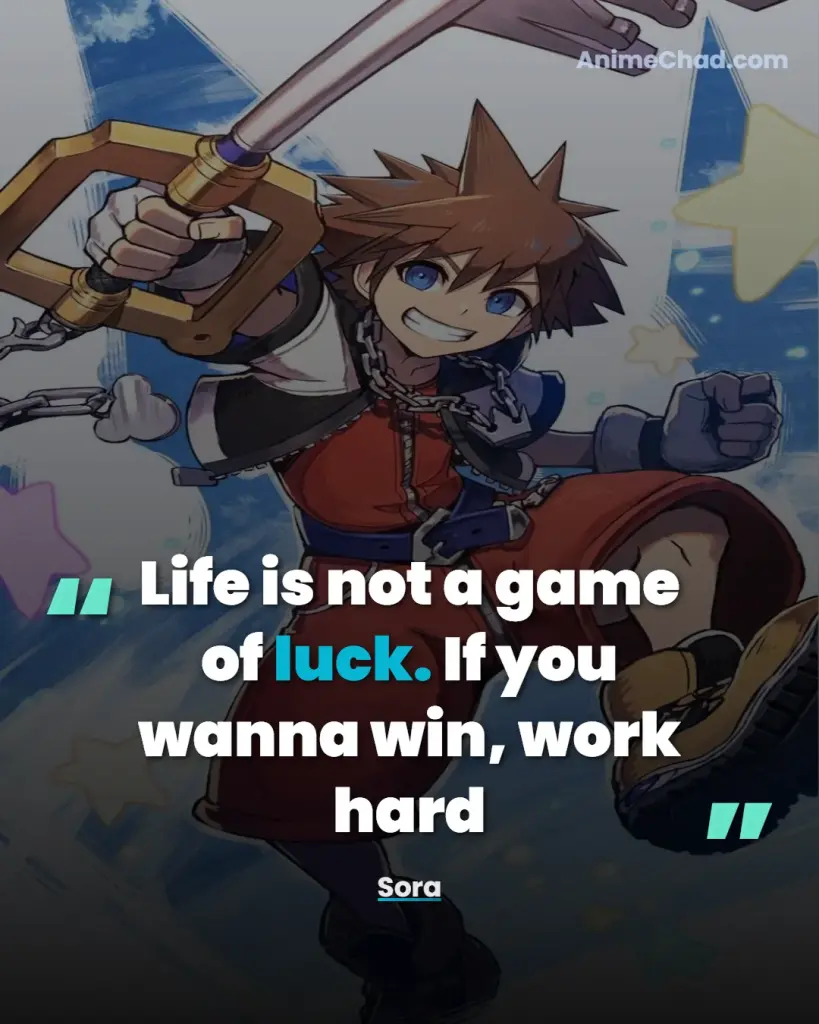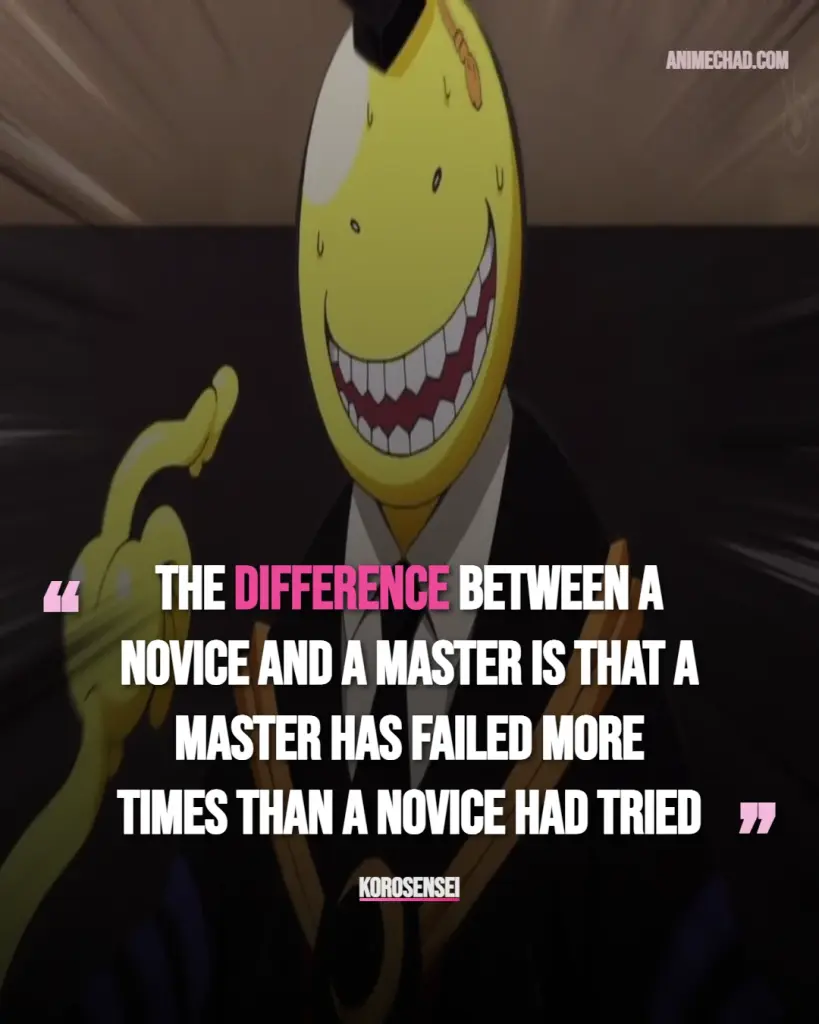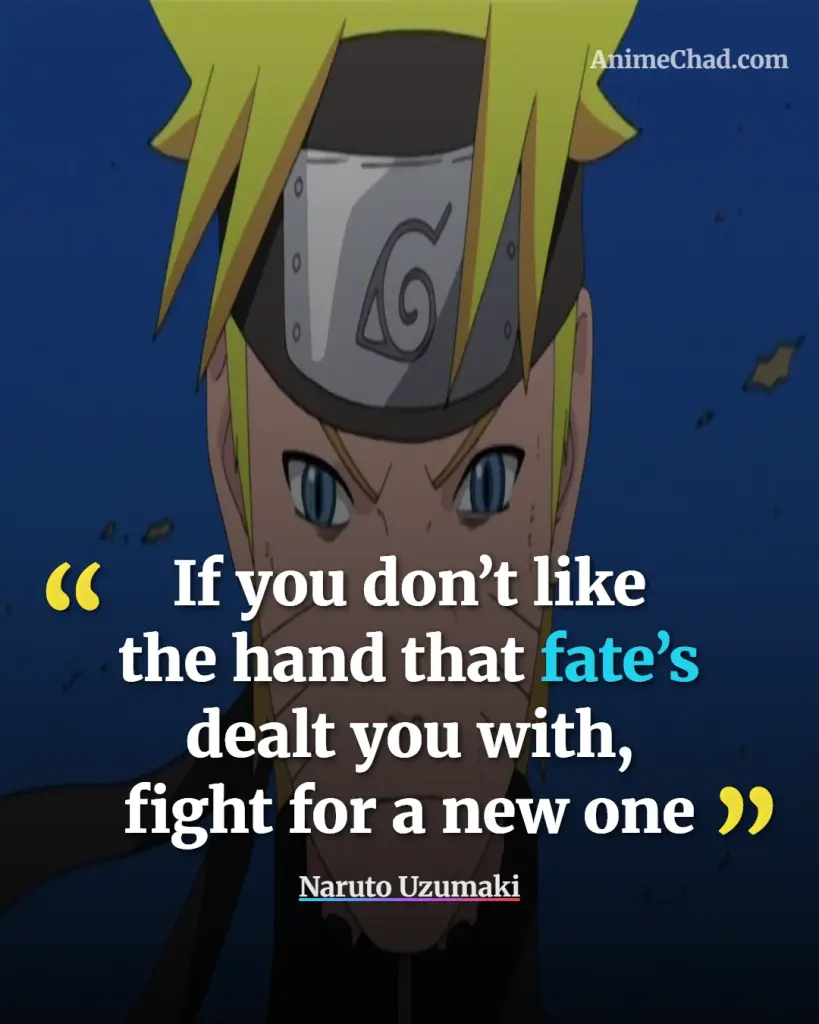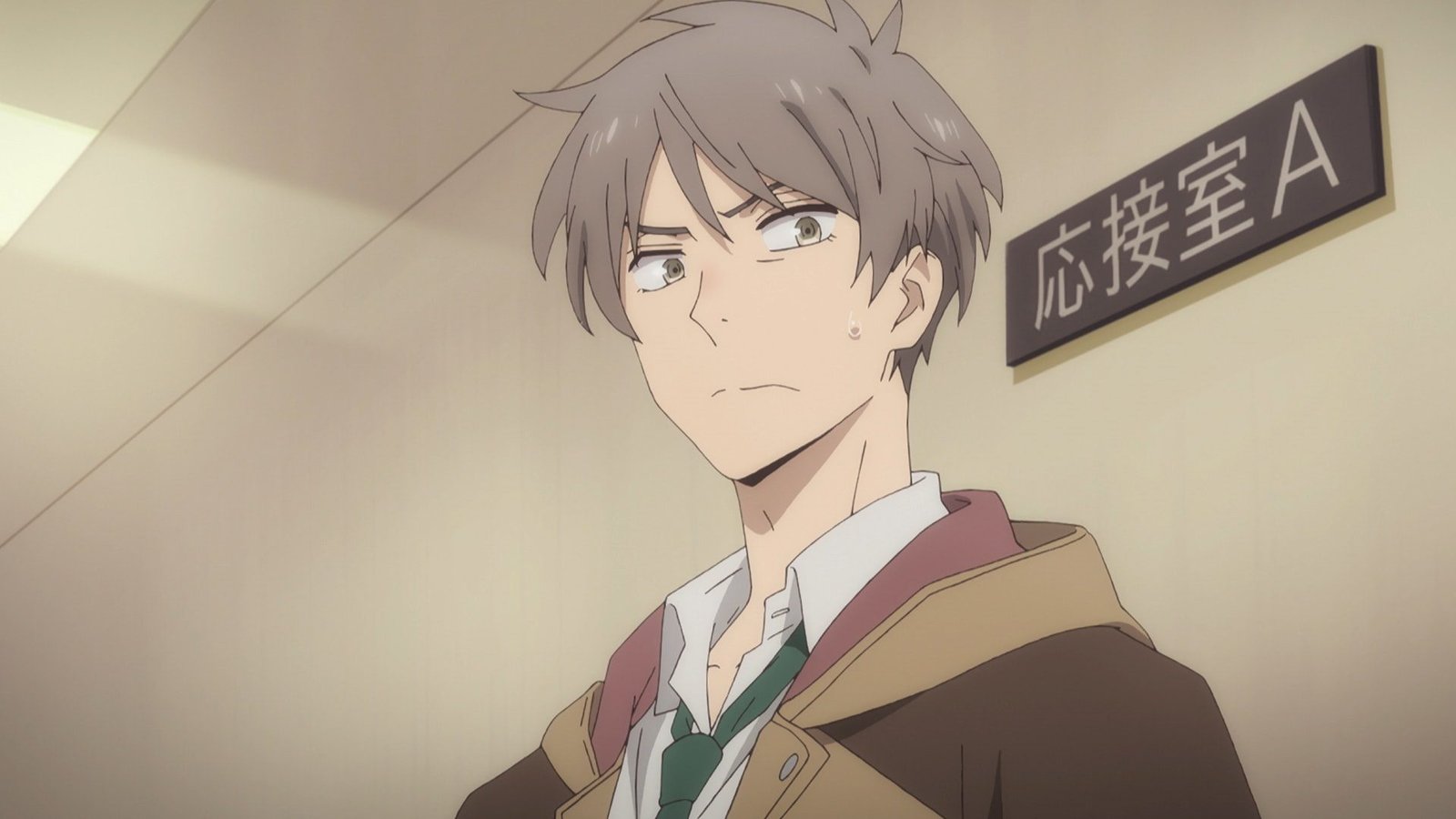Anime has captivated audiences worldwide with its profound storytelling, featuring characters who navigate complex journeys of self-discovery, resilience, and human connection across diverse series like Naruto, One Piece, and Fullmetal Alchemist. These narratives often delve into themes of perseverance, the nature of humanity, and the pursuit of dreams amidst adversity.
This curated collection of 25 wise quotes highlights timeless wisdom, drawing from various anime to inspire reflection on life’s deeper meanings and personal growth.
If you don’t take risks, you can’t create a future
Episode 276 (The Old Master and the Dragon’s Eye!)
Monkey D. Luffy
Luffy’s bold declaration during a pivotal adventure arc emphasizes embracing uncertainty for growth, reflecting his evolution from naive pirate to inspiring leader.
Push through the pain. Giving up hurts more
Episode 291 (The Desperate Struggle Continues!)
Vegeta
In a grueling battle, Vegeta’s words highlight resilience’s emotional triumph over surrender, showcasing his pride-driven development in Dragon Ball Z’s themes of strength.
The strong should aid and protect the weak. Then, the weak will become strong, and they in turn will aid and protect those weaker than them. That is the law of nature
Episode 4 (Become the Wind)
Tanjiro Kamado
Tanjiro’s compassionate philosophy during a peaceful training moment fosters empathy, tying into Demon Slayer’s cycle of kindness and his growth as a protector.
Nothing’s perfect, the world’s not perfect, but it’s there for us, trying the best it can. That’s what makes it so damn beautiful
Episode 63 (The Other Side of the Gateway)
Roy Mustang
Reflecting post-war trauma, Mustang’s insight embraces imperfection, underscoring Fullmetal Alchemist’s themes of redemption and his arc from ambition to humility.
If you never listen to anyone, you can’t give proper advice
Episode (The Boy and the Beast film, no specific episode)
Monk Momoaki
In a mentor-student exchange, this promotes humility and learning, highlighting character maturation in The Boy and the Beast’s exploration of guidance.
The world is cruel, but also beautiful
Episode 9 (Assault on Stohess, Part 1)
Mikasa Ackerman
Amidst intense battle revelations, Mikasa’s poignant observation captures duality, advancing her emotional depth in Attack on Titan’s survival themes.
Learn to treasure your life because unfortunately, it can be taken away from you anytime
Episode 25 (The Kira Case)
L Lawliet
L’s reflective warning during a high-stakes investigation stresses mortality, enhancing Death Note’s philosophical undertones and his detached yet insightful persona.
It’s more important to master the cards you’re holding than to complain about the ones your opponent was dealt
Episode (Pokémon series, specific episode varies; often attributed to Grimsley in games/anime)
Grimsley
This strategic advice in a competitive moment encourages focus, linking to Pokémon’s growth themes and personal agency.
Fear is not evil. It tells you what your weakness is. And once you know your weakness, you can become stronger as well as kinder
Episode 143 (The 143rd Period: Gildarts)
Gildarts Clive
Shared in a heartfelt fatherly talk, it transforms fear into growth, central to Fairy Tail’s kindness motif and Gildarts’ redemptive arc.
Giving up kills people. When people reject giving up… they finally win the right to transcend humanity
Episode 12 (The Ultimate Alchemy)
Alucard
In a philosophical confrontation, Alucard’s view elevates persistence, deepening Hellsing’s humanity themes and his immortal perspective.
If you don’t share someone’s pain, you can never understand them
Episode 135 (The Ten-Year Gap! Gathered Again!!)
Nagato
Nagato’s regretful confession post-battle fosters empathy, pivotal to Naruto’s forgiveness themes and his shift from villain to understood figure.
Whatever you lose, you’ll find it again. But what you throw away you’ll never get back
Episode 24 (The Wandering Samurai)
Himura Kenshin
In a reflective duel aftermath, Kenshin warns of irreversible choices, underscoring Rurouni Kenshin’s redemption arc and anti-violence message.
People become stronger because they have memories they can’t forget
Episode 178 (The Ninja Path…!!)
Tsunade
Tsunade’s wisdom during a war council inspires endurance, connecting to Naruto’s legacy themes and her healing from past losses.
If you want to make people dream, you’ve gotta start by believing in that dream yourself
Episode 1 (Amagi Brilliant Park)
Seiya Kanie
Launching a park revival effort, Seiya motivates with self-belief, highlighting Amagi Brilliant Park’s ambition and his confident transformation.
Simplicity is the easiest path to true beauty
Episode 1 (Barakamon)
Seishuu Handa
In a serene island adjustment, Handa discovers inner peace, tying to Barakamon’s self-reflection themes and artistic growth.
Don’t be so quick to throw away your life. No matter how disgraceful or embarrassing it may be, you need to keep struggling to find your way out until the very end
Episode 25 (The Kira Case, extended context)
Claude Faustus (often attributed; from Black Butler arcs)
This urges perseverance in despair, enhancing Black Butler’s dark themes and character resilience.
In all things, one cannot win with defense alone. To win, you must attack
Episode 25 (The Kira Case)
Light Yagami (contextual; Death Note)
Light’s tactical mindset in a mental duel stresses initiative, reflecting Death Note’s power struggles and his ambitious descent.
The times when you want to cry are when you have to try your hardest. That’s why I decided I’ll cry in general. Then, when I have to shed tears for a time when I really want to cry, my tears would have run dry
Episode 13 (The Immortal Gangster)
Firo Prochainezo (Baccano context)
In a moment of vulnerability, it builds emotional strength, linking to Baccano’s immortality and human endurance themes.
Only hope can give rise to the emotion we call despair. But it is nearly impossible for a man to try to live without hope, so I guess that leaves Man no choice but to walk around with despair as his companion
Episode 5 (The End of the Journey)
Jin (Samurai Champloo)
Jin’s stoic reflection during a journey’s lull balances hope’s duality, advancing Samurai Champloo’s philosophical wanderings.
I’m a genin, honored with the name of this village. My surname is Sarutobi, and my given name is Konohamaru! You will remember me!
Episode 2 (Konohamaru!!)
Konohamaru Sarutobi
Konohamaru’s defiant introduction marks identity assertion, tying to Naruto’s legacy and his growth from child to ninja.
The true measure of a shinobi is not how he lives, but how he dies
Episode 455 (The Pain of Living)
Jiraiya
Jiraiya’s final wisdom in battle underscores sacrifice, central to Naruto’s heroism and his mentor’s profound legacy.
Life is not a game of luck. If you wanna win, work hard
Episode 1 (No Game No Life)
Sora
Sora’s mantra in a strategic game world promotes effort, reflecting No Game No Life’s intellect themes and adaptive growth.
The difference between a novice and a master is that a master has failed more times than a novice had tried
Episode 24 (The Ultimate Alchemy)
Korosensei
Teaching failure’s value in a classroom moment, it inspires persistence, key to Assassination Classroom’s education and redemption arcs.
I hate perfection. To be perfect is to be unable to improve any further
Episode 366 (The Invisible Wall…!!)
Kurotsuchi Mayuri
Mayuri’s eccentric view during experimentation rejects stasis, enhancing Bleach’s innovation themes and his mad scientist evolution.
If you don’t like the hand that fate’s dealt you with, fight for a new one
Episode 178 (The Ninja Path…!!)
Naruto Uzumaki
Naruto’s rallying cry in a defining arc defies destiny, embodying his journey from outcast to hero in themes of change.

